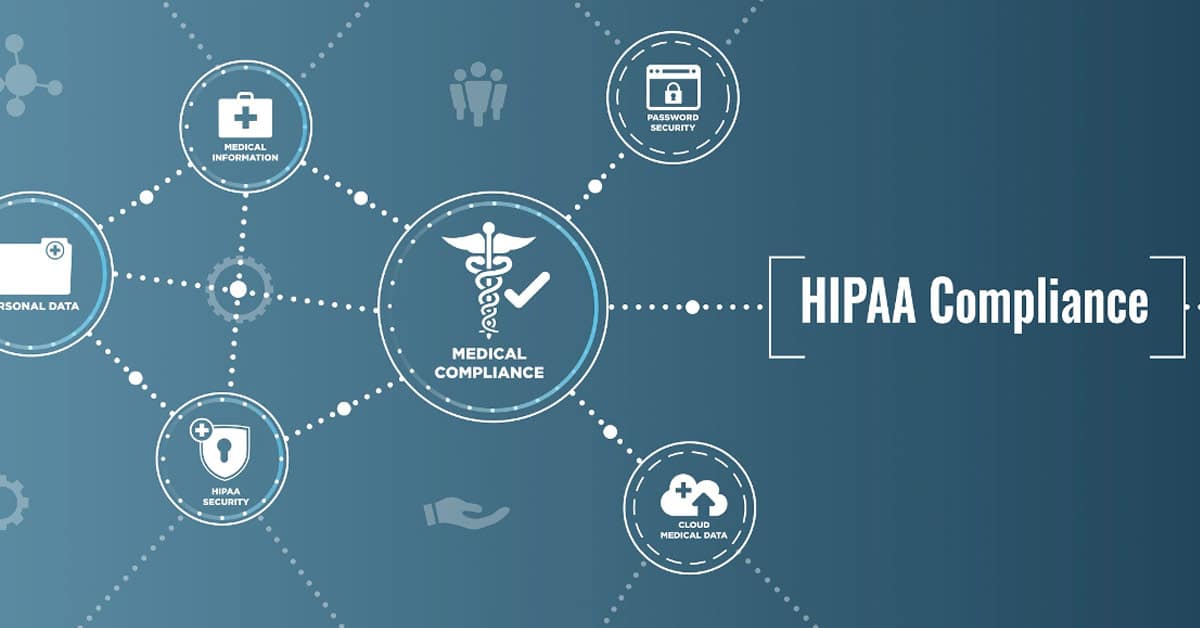HIPAA compliance is crucial for healthcare organizations to protect the confidentiality, integrity, and availability of patient data. The Health Insurance Portability and Accountability Act (HIPAA) establishes national standards for the protection of patient data and regulates how healthcare organizations must handle and protect this data. Failure to comply with HIPAA regulations can lead to significant penalties and damage to the reputation of healthcare organizations. Therefore, healthcare organizations must ensure compliance with HIPAA requirements.
This article provides a comprehensive HIPAA compliance checklist that healthcare organizations can follow to meet HIPAA compliance requirements. The checklist includes the HIPAA security rule, audit requirements, and guidelines for data security.
HIPAA Compliance Checklist
Conduct a Risk Analysis
Healthcare organizations must conduct a comprehensive risk analysis to identify and document potential risks and vulnerabilities that could compromise the security of patient data. This process should include identifying potential threats and assessing the likelihood and impact of a data breach.
Develop and Implement HIPAA Policies and Procedures
Healthcare organizations must develop and implement HIPAA policies and procedures to ensure compliance with HIPAA regulations. These policies and procedures should cover a range of topics, including the HIPAA security rule, breach notification requirements, and patient rights.
Train Employees on HIPAA Compliance
All employees who handle patient data must receive HIPAA compliance training. This training should include the organization’s policies and procedures, as well as guidelines for protecting patient data.
Secure Patient Data
Healthcare organizations must implement physical, technical, and administrative safeguards to secure patient data. This includes restricting access to sensitive data, implementing encryption and password protection, and conducting regular security audits.
Conduct Regular Audits
Healthcare organizations must conduct regular audits to assess compliance with HIPAA regulations. Audits should include a review of policies and procedures, employee training, data security measures, and breach response plans.
Develop and Implement a Breach Response Plan
Healthcare organizations must have a breach response plan in place in case of a data breach. This plan should include steps for containing the breach, notifying affected individuals, and reporting the breach to regulatory authorities.
Business Associate Agreements
Healthcare organizations must have business associate agreements (BAAs) in place with any vendors or contractors who have access to patient data. These agreements should include provisions for data security, breach notification, and termination of the agreement.
FAQs
What are HIPAA violations, and what are the consequences of non-compliance?
HIPAA violations are instances where healthcare organizations fail to comply with HIPAA regulations. The consequences of non-compliance can include significant penalties, legal action, and damage to the reputation of healthcare organizations.
What is the HIPAA security rule?
The HIPAA security rule is a set of regulations that establish national standards for the security of electronic patient data. Healthcare organizations must comply with these regulations to ensure the confidentiality, integrity, and availability of patient data.
What is a HIPAA audit checklist?
A HIPAA audit checklist is a tool that healthcare organizations can use to assess compliance with HIPAA regulations. The checklist should include items related to the HIPAA security rule, breach notification requirements, and data security measures.
Conclusion
HIPAA compliance is critical for healthcare organizations to protect the privacy and security of patient data. This comprehensive HIPAA compliance checklist includes the HIPAA security rule, audit requirements, and guidelines for data security. By following this checklist, healthcare organizations can ensure compliance with HIPAA regulations and protect their patients’ data from unauthorized access and breaches. Remember by implementing the guidelines mentioned in this HIPAA compliance checklist, healthcare organizations can create a secure environment for patient data. Compliance with HIPAA regulations not only safeguards patient data but also helps build trust with patients and strengthens the reputation of the organization. Therefore, it is crucial for healthcare organizations to take HIPAA compliance seriously and ensure that all employees are trained on the regulations.
In conclusion, HIPAA compliance is an essential aspect of healthcare organizations. The checklist provided in this article can serve as a useful tool for healthcare organizations to ensure that they comply with HIPAA regulations. Conducting regular audits, implementing physical and technical safeguards, developing and implementing policies and procedures, and having a breach response plan are critical components of HIPAA compliance. By following this checklist, healthcare organizations can ensure the security compliance and privacy of patient data and avoid the consequences of HIPAA violations.
